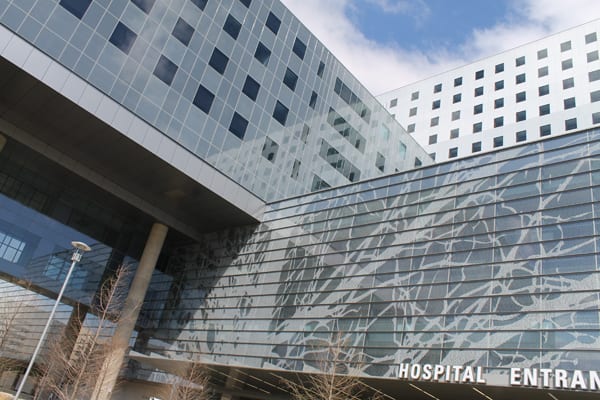 More than 35 years after the first cases of HIV/AIDS were reported, individuals living with the disease, as well as their families, continue to face the fear of stigma and discrimination.
More than 35 years after the first cases of HIV/AIDS were reported, individuals living with the disease, as well as their families, continue to face the fear of stigma and discrimination.
That’s why Parkland Health & Hospital System is once again taking part in the yearly observance of World AIDS Day on Dec. 1. The worldwide observance, which has taken place each year since 1988, is an opportunity for people to unite in the fight against HIV/AIDS, show their support for people living with the disease and to commemorate those who have died.
Parkland invites the public to a balloon launch that will take at 2 p.m., Thursday, Dec. 1 at the Amelia Court Clinic, 1936 Amelia Court.
“This is an event to commemorate the lives of those lost as a result of HIV/AIDS and also to show support for all those who are affected by this,” said Jane Fitzpatrick, RN, HIV Services Unit manager at Parkland.
Fitzpatrick said observances such as World AIDS Day are important because stigma about the disease continues to be a major challenge for individuals and also a huge barrier that still keeps many people from getting tested and receiving ongoing treatment.
“People knowing their status is a vital part of addressing HIV/AIDS,” Fitzpatrick said. “That is why Parkland provides some 30,000 HIV tests each year in its Emergency Department through a routine testing initiative funded by the Texas Department of State Health Services.”
In addition, UT Southwestern Medical Center provides confidential HIV testing at Parkland’s Amelia Court Clinic from 9 a.m.–1 p.m., Tuesdays and Fridays.
According to the Centers for Disease Control and Prevention, 1.2 million persons in the U.S. are living with HIV infection; about 13 percent of them are unaware they have it.
“Testing is very important because if HIV is left untreated, the immune system deteriorates and the person can develop a major opportunistic infection, such as a bad case of pneumonia, meningitis or retinitis,” said Amneris E. Luque, MD, Medical Director of HIV services at Parkland and a Professor of Medicine/Infectious Disease at UT Southwestern. “It is much easier to treat someone who has been diagnosed early and they usually do much better.”
Parkland provides HIV care and services to more than 5,000 persons at three community outpatient clinics. Dr. Luque said that with current medications, a person’s viral load, the amount of the virus in a person’s blood, can often be suppressed.
“Suppression of the viral load not only helps keep the patient from developing an opportunistic infection, it also has been shown to decrease the likelihood of transmitting the virus to others,” Dr. Luque said.
Parkland provides HIV services through Ryan White HIV/AIDS grant funding. These services range from primary care medical services to support services such as financial counseling and case management. And when necessary, patients also can be referred to about 100 specialty and subspecialty clinics in the Parkland system.
Parkland World AIDS Day event seeks to eliminate stigma











